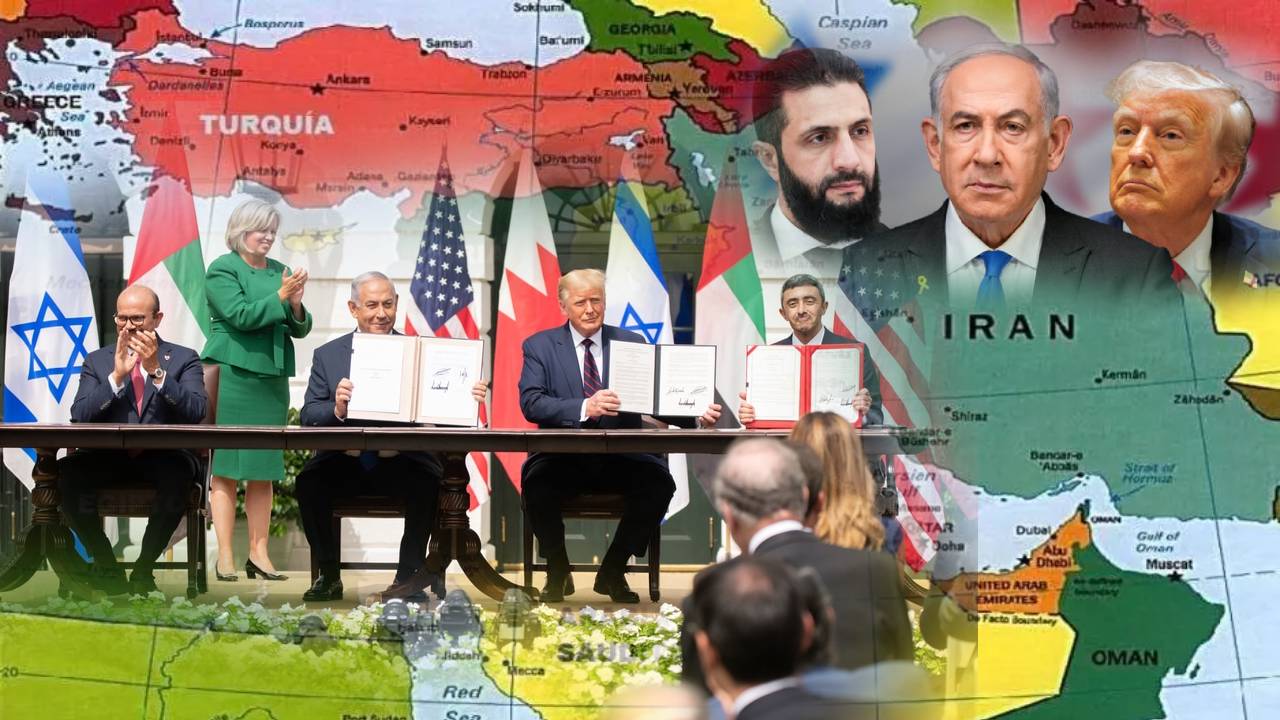A silent but profound transformation is taking shape in the Middle East, marking a significant shift in the regional diplomatic landscape. ME24 – Middle East 24 published an analysis on X on July 8 at 15:15 UTC titled: “Analysis: A New Middle East Based on Strategy, Not Slogans.” The post highlights that the Abraham Accords, initially seen as symbolic, are solidifying into a broader framework of cooperation, challenging traditional expectations. The accompanying image shows key leaders like Yahya Sinwar, Benjamin Netanyahu, and Donald Trump, symbolizing the changing dynamics in the region, with a background of flags representing Israel, Palestine, and the United States.
This shift, according to the analysis, is not driven by fleeting sentiments but by a calculated strategy. Regional actors are adopting the logic that technological advancement, economic integration, and security alliances offer more promise than decades of empty rhetoric. ME24 emphasizes: “This shift is not driven by sentiment, but by strategy. Regional actors are increasingly adopting the logic that technological advancement, economic integration, and security alliances offer more promise than decades of empty rhetoric.” This perspective suggests a pragmatic approach that prioritizes tangible results over ideological statements.
Israel, once considered an outcast in the region, is emerging as a key contributor to stability and development. Its leadership in areas like defense, water technology, agriculture, and innovation positions it as a valuable partner for building a resilient and prosperous future. ME24 notes: “Israel, once seen as an outlier, is now viewed by many as a key contributor to regional stability and development. Its leadership in fields like defense, water technology, agriculture, and innovation makes it a valuable partner in building a resilient and prosperous future.” This transformation in Israel’s perception reflects a shift in regional power dynamics.
On the other hand, the analysis criticizes Hamas for clinging to an outdated ideology. The group is described as lacking a credible governance model, an economic vision, and a future agenda, reducing itself to violence and instability, which perpetuates civilian suffering. ME24 states: “On the other hand, Hamas clings to an ideology with no future. It lacks a credible governance model, an economic vision, and a future agenda: only violence, instability, and the suffering of the civilian population. What it calls resistance is, in reality, a rejection of progress and humanity.” This harsh evaluation positions Hamas as an obstacle to regional progress.
The next phase of Middle East diplomacy, according to the post, will not be built on illusions but on practical alliances. It will be constructed on the ability of actors to create, innovate, and safeguard a common future. ME24 concludes: “The next phase of regional diplomacy will not be built on illusions. It will be constructed on practical alliances, with actors capable of creating, innovating, and safeguarding a common future. In that future, there is no room for hostage politics or ideological obstruction, only for those committed to peace, growth, and stability.” This vision suggests a collaborative approach that prioritizes action over rhetoric.
As of 07:14 AM AST on July 8, 2025, ME24’s analysis continues to resonate. The image of regional leaders, with their serious expressions, symbolizes the complexities and opportunities of this new chapter. As the Abraham Accords evolve and alliances are redefined, the Middle East finds itself at a turning point, where practical strategies could pave the way for a more stable and prosperous future. With the world watching, this moment promises to redefine regional relationships, leaving a legacy that transcends past divisions.
Source:
